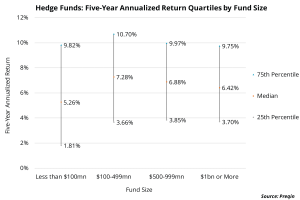Hedge Fund vs Asset Management
Hedge funds vs asset management is a long and complicated topic. There are many layers to the discussion, and often the difference between the two types of investing is not quite so clear cut. One may find that he/she makes the most sense as a hedge fund manager, while others may make the best use of asset management for their portfolios. Still, other investors will find that the investment philosophies are very similar and can be applied in either style.
There are a lot of advantages to being a hedge fund manager. For one thing, hedge funds tend to be highly diversified, which is a good thing for you as an investor. The diversification will help you achieve a much higher return on your investments than if you were to invest simply in a few stocks or mutual funds. The key here is to remember that hedge funds are all about long term growth, so even if one stock does really well, you should not get too upset because that stock was simply a lucky pick that is not likely to do well in the near future. It is always best to invest more than one-tenth of your total portfolio in each stock.
On the other hand, if you want to be a good asset manager, then the asset management part is probably the trickiest. In general, asset management means you are trying to allocate money into specific investment opportunities. Some people who have spent years working in this type of role may find that their skills simply do not work well in this role. If you are just beginning your career as a hedge fund manager, then it might be a good idea to focus on things like choosing which investments to make and which ones to pass over.
Some of the advantages of being a hedge fund manager can be seen when you are first starting out. First of all, you are going to be able to use your reputation as a successful investor to get a foot in the door with any major company. Second, you will be able to do pretty much everything yourself. Third, you can enjoy all the perks of working in the financial markets, including all the perks that come with managing your own portfolio. Finally, you will be able to set your own hours, which is one of the main advantages of working in this type of job.
In terms of advantages to asset management, there are many. You can spend less time hiring and training employees. You can keep up with the latest market trends and stock quotes. You can also work with less capital and spend more time on less important things.
The downside of hedge fund vs asset management, however, is that asset management requires some degree of creativity. This means that you will need to be a little more creative about what you are investing in. For example, if your goal is simply to generate income and invest money to buy and hold long-term assets, you should probably invest in some commodity or agricultural products instead of the more speculative securities like bonds and stocks. However, if you want to earn a higher yield and have some more control over your investments, you should invest in securities like residential real estate and commercial real estate. There are even some managers who believe that investing in commodity markets offers them greater profit potential than a lot of asset management professionals. The fact is, hedge funds are more complicated than you think, and if you want to be a good asset manager, you will definitely have to learn a lot about the investment world.



